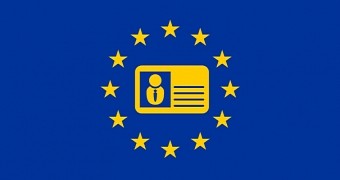Fears that fake online reviews might ruin the consumer market and damage legitimate businesses are making the European Commission consider the idea of forcing online platforms to allow EU citizens to log into online accounts using their government-issued ID cards.
Details about these plans can be found in a proposal named "Online Platforms and the Digital Single Market Opportunities and Challenges." The document addresses all platforms where users can post product reviews.
According to this document, dated to May 25, 2016, the European Commission is exploring the theoretical possibilities of forcing online review platforms into using government IDs as online identities.
The paragraph that raised the most concerns from privacy and civil groups is on page ten of the aforementioned document:
“ It is recognised that a multitude of username and password combinations is both inconvenient and a security risk. [...], in order to keep identification simple and secure, consumers should be able to choose the credentials by which they want to identify or authenticate themselves. In particular, online platforms should accept credentials issued or recognised by national public authorities, such as electronic or mobile IDs, national identity cards, or bank cards. ”
Why such an Orwellian clause? If we are to believe the same document, it's because of fake product reviews that might lead EU consumers into making the wrong purchase, as per page eleven of the same document:“ Online ratings and reviews of goods and services are helpful and empowering to consumers, but they need to be trustworthy and free from any bias or manipulation. A prominent example is fake reviews[...] ”
The men behind this proposal think that forcing online platforms to allow EU citizens to use their real identities when logging into their online accounts to post reviews will stop people in non-EU countries from posting fake reviews. Because, let's face it, everyone would like to throw away the ability to protect their online identity for the sake of buying the best USB Type-C cable on Amazon. Giving people the option to recognize a real from a fake review based on the identity of the poster does not necessarily stop people from outright lying.Little chance of approval in its current state
In its present form, the document has little chance of passing through the European Parliament, being clearly written by a person who didn't take all factors into account.
The document is clearly written for businesses alone and doesn't detail any security measures to protect the online privacy of EU citizens. If approved, EU citizens would be offering more information when logging into a review website than ever before, which could be very easily abused in the case of a data breach.
The European Commission and Andrus Ansip, Vice-President for the Digital Single Market on the European Commission and the man behind this proposal, will have to provide more details regarding the technical implementation of their plan.
Taking into account that the European General Data Protection Regulation (EGDPR) has recently come into effect, being a law that boosts online privacy protections for EU citizens, this proposal goes against the grain of what the EU is trying to accomplish in the long term.
Back in 2011, the US started a process to implement a similar plan called Internet ID, which in 2014 was tested in Michigan and Pennsylvania, with little news about it ever since.
UPDATE: The article's title was updated.

 14 DAY TRIAL //
14 DAY TRIAL //